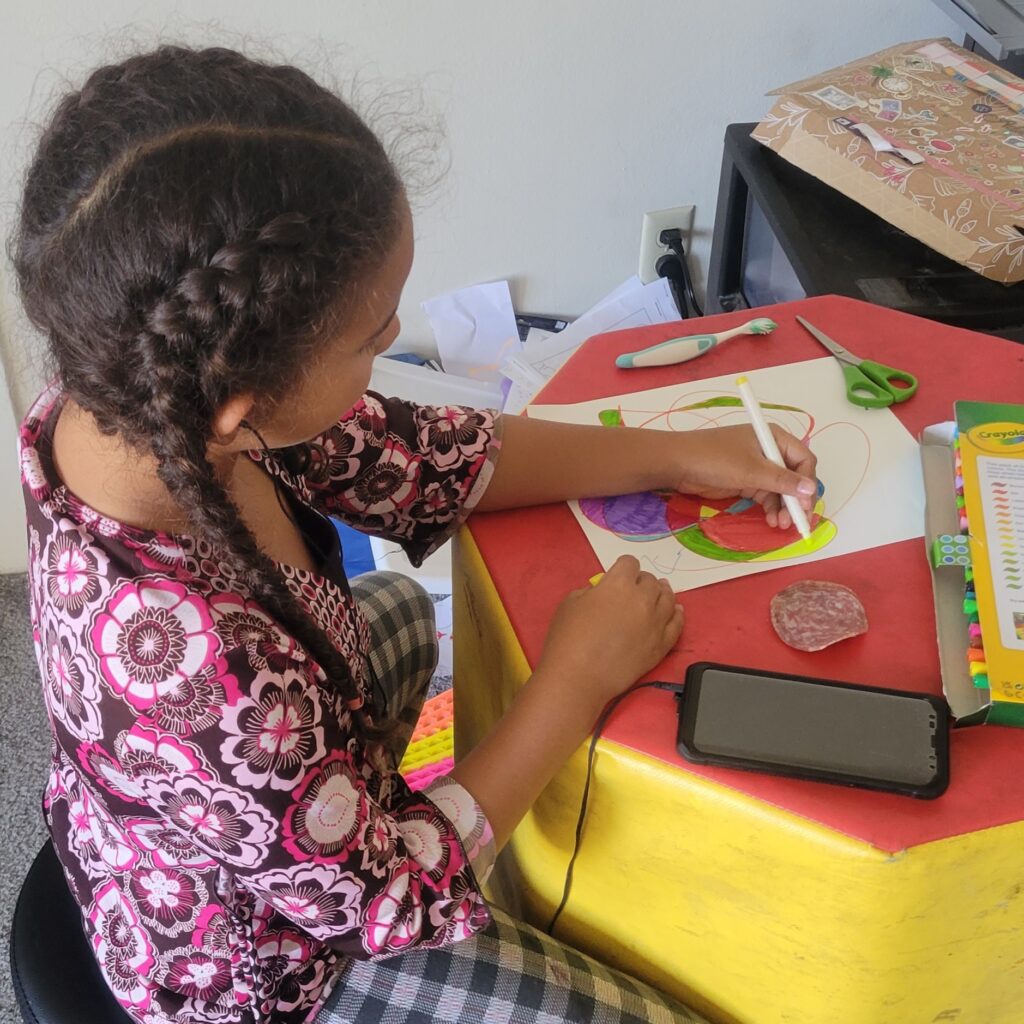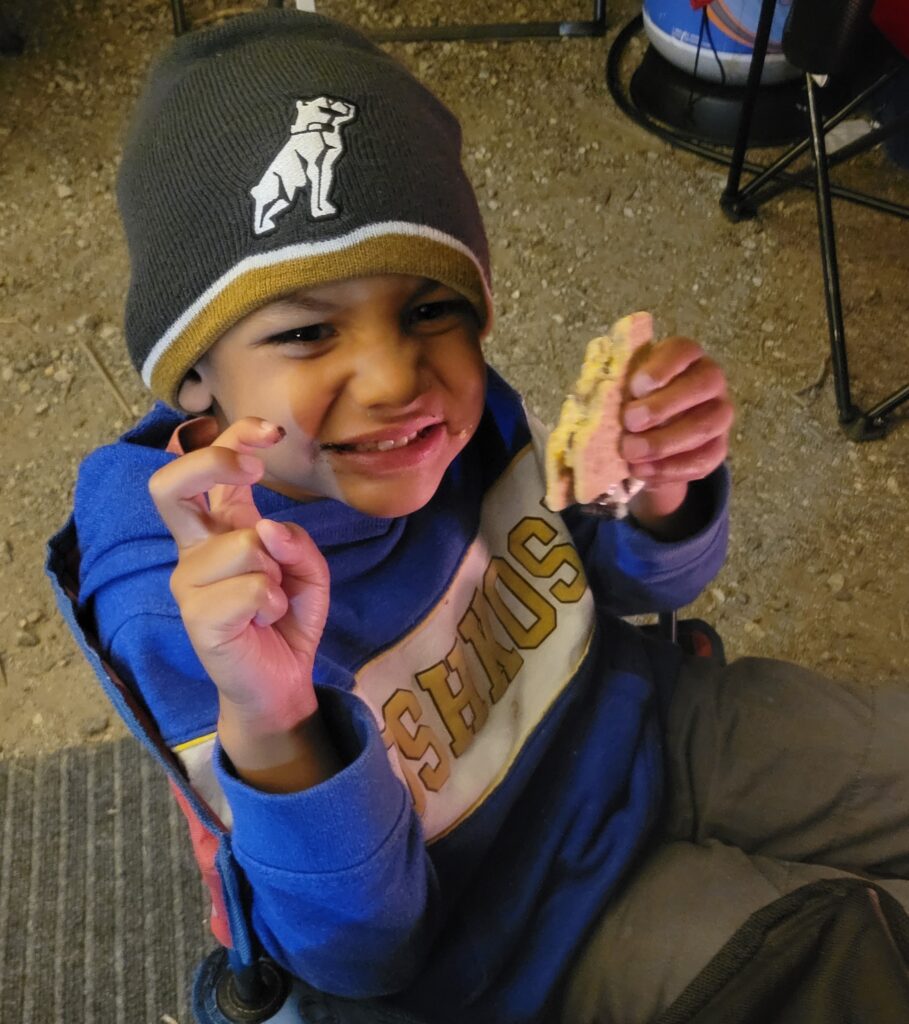Afa and I have made many decisions that seem counterintuitive when viewed in the context of achieving success, specifically the “American Dream.” In so many ways, we have been taught since childhood that having more and having bigger is better. It creates a cycle of consumerism that is terrible for our mental health and for much of the planet, and it drives us into debt that then has significant control over our lives. We have intentionally chosen a different path that allows us the flexibility and mobility to move at the call of God on a new adventure.
From House to Apartment
When we first bought our house in the Bay Area at the end of 2020, I was apprehensive because I thought that once Afa had a house, he would never want to leave again. Even then, I loved our semi-nomadic lifestyle – starting over every few years to see what life held anew. I thought that purchasing a house meant I was sacrificing all of that. Lo and behold, two years later we were asked to move to Los Angeles.
On our drive home, I was nervous to ask Afa what he thought of the idea of us moving because I didn’t want to be told no. I had never in my life considered moving to LA, but when I was presented with the opportunity, for the moment I wanted nothing more. In one of my stronger moments of self-control, I sat quietly instead of peppering Afa with all the reasons I thought this move was exactly what we should do. When he started talking, it sounded like, “When we get to LA, it will be great to see my family more,” and “I’ll need to work on the house to get it ready to rent out.” He suddenly stopped talking, looked at me, and exclaimed, “Babe, I’m so sorry. I never even asked how you felt about moving.”
Despite all my anxieties about being stuck in life, he was just as ready to move as I was.
Looking from the outside in, our move didn’t make any sense. We left our beautiful 3-bedroom home with a backyard and park within walking distance to a two bedroom high rise apartment, but we gained so much more than we lost. We got to live with our family for more than two months, and the location of our apartment could not be more perfect for our lifestyle. By going “backwards,” we gained more than we could imagine. The kids and I are able to get out and explore almost every afternoon; our local library has free activities once a week; and we visit museums around us regularly.

Charlotte Mason-ish
Another way in which we have chosen not to pursue the American definition of “success” is in the curriculum we have chosen for homeschooling. I describe our homeschool philosophy as “Charlotte Mason with an unschooling flavor.” By design, our learning methods are slow. If any of my kids took a standardized test, they would likely score “behind” their ages. In our house, learning to learn, unlearn, relearn and question all take higher priority than getting the answer “right.” If I’m not drilling them daily on math facts, it’s going to look like they are learning much more slowly than others.
However, they are learning to listen to another side of the story, summarize it, and retell it. They will be able to listen to someone who disagrees with them and understand the argument before responding. We read literature, both classic and modern. We discuss characters, themes, and moral quandaries as they absorb stories that are far too “advanced” for their ages. But again, by any measure in the American school system, they wouldn’t appear to be doing exceptionally. They have spent much more time learning how to think rather than what to think, which doesn’t lend itself to easily being scored.

A Slower Life
Afa and I are very intentional about the extracurricular activities that we let the kids participate in. In no way are we trying to deny them access to a life that brings them joy, but we are trying to protect their childhood. We decided that we want our kids to have large chunks of unstructured, outdoor time every week. Due to the time commitment of extracurricular activities, these two agenda priorities are often mutually exclusive. This is not to say that one is better than the other, only that we have chosen the former. In fact, I think the benefits of team sports are likely equivalent to the benefits of unstructured outdoor time, so each family should choose the path that works for them.
We decided that we do not want our kids waking up early, going to school, coming home to get through homework, rushing to a sport, hurrying home to shower and eat, all to wake up and repeat the pattern the following day. We want them to live unhurried, in a world of rest that God teaches us about throughout the Bible, especially in early Genesis. God designed us to thrive in resting in Him.

I have had people ask me how my kids will get scholarships if they don’t play sports. My feelings about athletic scholarships and the way they are set up to take advantage of athletes aside, I don’t know that my children are going to college. Perhaps, they want to choose a different life that looks nothing like the prescription path so many of us were set upon. We have decided that we are not willing to sacrifice that joy that comes from a slow, restful childhood for the potential that they might one day qualify for a scholarship.
Conclusion
I don’t write these explanations to judge another family in any way, in fact quite the opposite. I write them to hopefully give you an example of choosing the path that works best for your family – whatever that path might look like. For us it looks different than many people expect, so we tend to receive lots of comments on our parenting choices. For your family, it should look different than it does for ours, but I hope that you understand the freedom you have to make the best choices for your family. They don’t have to be the ones that everyone else is doing. They can be completely individual, because every family is different and every child in that family is different. So the solutions can all look different as well. Don’t feel tied to a set of external expectations that may not fit who you actually are. In the end, there is probably a greater goal than achieving the “American Dream.”
